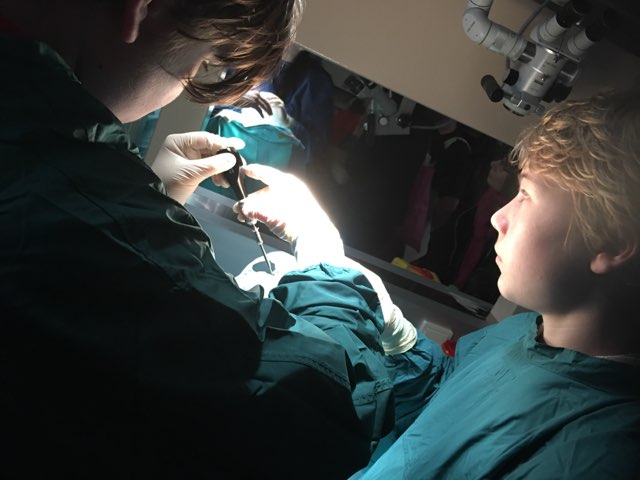I just came back from a conference on the many Renaissances in Asia. Since it was part of the Coffee Break Conference project, it was meant to be most of all an open discussion on a fascinating topic (rethinking the concept of Renaissance and asking whether this could be applied also outside its original context, and more specifically in South Asia). The starting point of the discussion was Jack Goody’s book “Renaissances: The one or the many?”, which has been analysed from very different perspectives in the opening talks by Camillo Formigatti and Antony Pattathu and to which most of the following talks referred back to. There was a general consensus about the fact that Goody’s depiction of South Asia is at best incomplete and at worst repeats some orientalist prejudices about its being changeless.
Monthly Archives: April 2018
What happens when the Veda prescribes malefic actions?
Vīrarāghavācārya's take on the Śyena
To my knowledge, Veṅkaṭanātha’s Seśvaramīmāṃsā (henceforth SM) has been commented upon only once in Sanskrit, namely in the 20th c. by Abhinava Deśika Vīrarāghavācārya.
Vīrarāghavācārya continues Veṅkaṭanātha’s agenda in reinterpreting Mīmāṃsā tenets in a Viśiṣṭādvaita Vedānta way.
The next IIGRS is approaching
Call for paper
International Indology Graduate Research Symposium
We are pleased to announce that the tenth International Indology Graduate Research Symposium (IIGRS 10) will take place at SOAS, University of London, on Friday the 28th and Saturday the 29th September 2018.
We look forward to receiving abstracts from graduate students, as well as early career researchers who have completed their PhD within the past five years.
Abstracts should be submitted to iigrsuk@googlemail.com by the 6th of May 2018. We will consider all Indological topics provided they are based on primary sources studied in the original language.
Abstracts should not exceed 300 words and should include:
1) Your name and institution + indication of research degrees and positions held;
2) the title of your paper;
3) a broad indication of its subject area;
4) an outline of its contents.
Please send your abstract in both Word and PDF format. More information can be found at:
https://iigrs.wordpress.com/
For further questions, contact us directly at iigrsuk@googlemail.com
Why should one study the meaning of the Veda? I.e., why studying Mīmāṃsā?
(It is hard to present your research program to the public)
At a certain point in the history of Mīmāṃsā (and, consequently, of Vedānta), the discussion of the reasons for undertaking the study of Mīmāṃsā becomes a primary topic of investigation. When did this exactly happen? The space dedicated to the topic increases gradually in the centuries, but Jaimini and Śabara don’t seem to be directly interested in it.
Die Lange Nacht der Forschung: How do we present our research to the public?
Two days ago I visited a part of the “Long night of research”, an event having the purpose of presenting research to the public. Universities, the academy of sciences and various private funds supporting scientific research (like the Rotary club) had a small portion of an open space to present their highlights. The idea is that people just stroll from one location to the other and spend only some minutes in each. Thus, an effective communication needs to be essential, catchy and striking enough to mould the audience’s memory.
The public included many children and their parents. It goes without saying, I guess, that the institutes focusing on natural sciences were way more successful in gaining the attention of young visitors. In the photograph, you can see two 13 ys old boys operating a fake brain.

